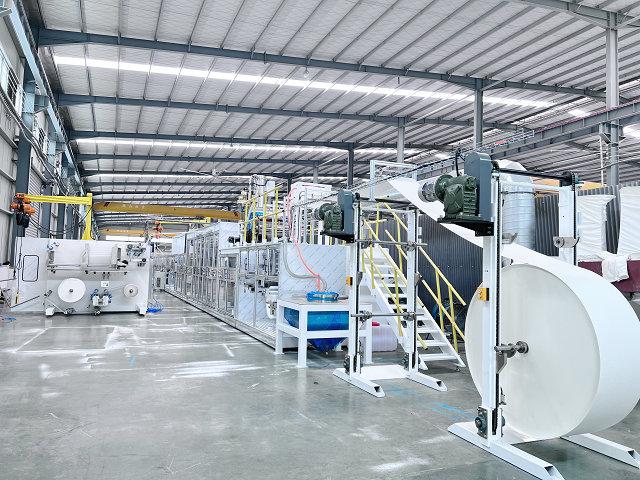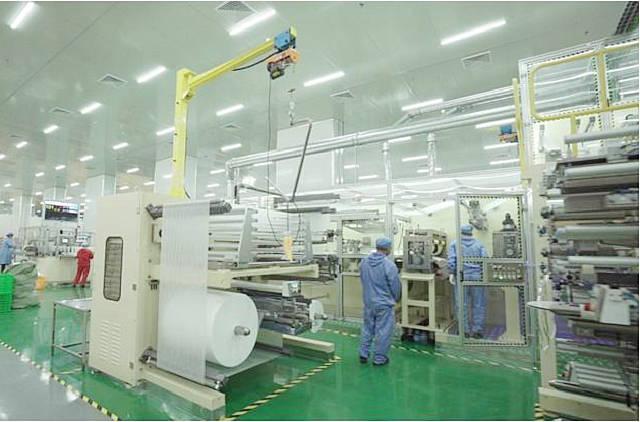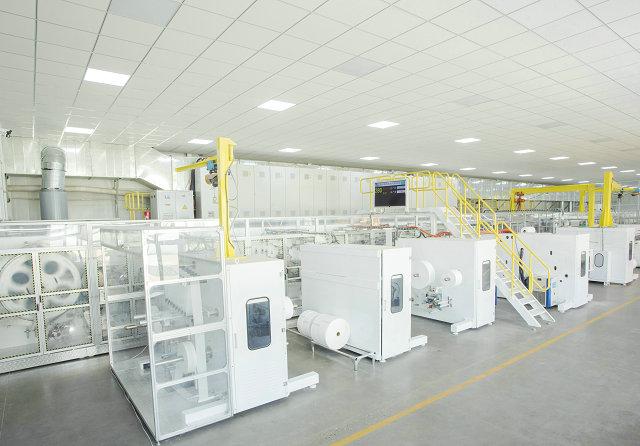Author:Haina Machinery Factory FROM:Diaper Machinery Manufacturer TIME:2024-11-15
Ensuring that your sanitary pad manufacturing machine complies with regulations is crucial for maintaining product quality, safety, and marketability. With the increasing awareness of hygiene products' impact on health and the environment, regulatory bodies have established guidelines that manufacturers must follow. This article explores various steps you can take to ensure compliance with relevant regulations, covering essential aspects such as material safety, quality control, and environmental considerations.
Before diving into compliance measures, it's vital to understand the regulatory frameworks governing sanitary pad manufacturing machine. Different countries have varied standards, often dictated by health organizations and government agencies. Familiarize yourself with the specific regulations in your target market, including those from the FDA in the United States, the European Commission in Europe, and other local authorities. This understanding will guide your compliance efforts and help you avoid legal pitfalls.

The materials used in sanitary pads are a major factor in regulatory compliance. Ensure that all raw materials meet safety standards and are approved for use in hygiene products. Conduct thorough research on the suppliers to verify that they provide materials free from harmful chemicals and allergens. Additionally, consider using biodegradable or eco-friendly materials, as many regulations now emphasize sustainability. This not only helps in compliance but also appeals to environmentally conscious consumers.
Quality control is essential in ensuring that your sanitary pad manufacturing machine produces safe and effective products. Establish stringent quality control procedures throughout the manufacturing process. This includes regular testing of raw materials, in-process checks, and final product evaluations. Document all quality control activities to create a traceable record. Compliance with ISO standards related to quality management systems can also enhance credibility and ensure that your processes align with regulatory requirements.

A well-trained workforce is critical in maintaining compliance with regulations. Invest in training programs that educate employees about hygiene standards, safety protocols, and operational best practices. Regular training sessions should cover updates in regulations and industry standards. Encourage open communication among staff regarding compliance issues, fostering a culture of accountability and awareness within the organization.
Regular internal audits are an effective way to assess compliance with regulations. Schedule these audits systematically to evaluate every aspect of the manufacturing process, from raw material sourcing to final product distribution. During these audits, identify any non-conformances and implement corrective actions promptly. Engaging third-party auditors can also provide an objective perspective and help ensure that your operations meet regulatory expectations.
The regulatory landscape is constantly evolving, so staying informed about changes is essential. Subscribe to newsletters from relevant regulatory bodies and industry associations to receive updates on new regulations or amendments. Attend industry conferences and workshops to network with other professionals and gain insights into best practices for compliance. Proactively adapting to regulatory changes will position your company as a responsible manufacturer committed to high standards.
Documentation is a critical aspect of compliance. Maintain comprehensive records of all compliance-related activities, including material certifications, quality control tests, employee training logs, and audit reports. This documentation not only serves as evidence during inspections but also helps you track progress and areas needing improvement. A well-organized documentation system will facilitate smoother audits and enhance your company's reputation.
Building a relationship with regulatory authorities can be beneficial for compliance. Do not hesitate to reach out for clarification on regulations or guidance on specific compliance issues. Some agencies provide resources and support for manufacturers, helping them navigate complex regulations. Being proactive in your communications can foster goodwill and potentially ease future compliance challenges.

As consumer awareness of environmental issues grows, incorporating sustainability into your manufacturing process is increasingly important. Regulations are shifting towards requiring eco-friendly practices, such as reducing waste and minimizing carbon footprints. Evaluate your production methods to identify opportunities for implementing more sustainable practices. Not only will this help with compliance, but it can also enhance your brand's appeal in a crowded market.
Ensuring that your sanitary pad manufacturing machine is compliant with regulations is a multifaceted endeavor that requires diligence, continuous improvement, and adaptability. By understanding regulatory frameworks, selecting safe materials, implementing robust quality control measures, and keeping abreast of changes in regulations, you can create a compliant and successful manufacturing operation. Remember that compliance is not just a legal obligation; it is also a commitment to quality and safety that benefits both your business and your consumers.
